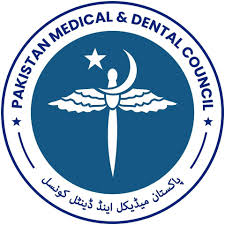Prospective analysis of factors affecting the surgical outcomes of pediatric depressed skull fractures
DOI:
https://doi.org/10.37018/SLGB1653Keywords:
Pediatric, Depressed Skull Fractures, Traumatic Brain Injury, Surgical OutcomeAbstract
Background: Around 42% of the pediatric patients present with skull fractures and the prognosis depends on several factors including type and location of fracture along with severity of associated brain trauma. The objective of this study was to find the factors affecting the outcome in childhood depressed skull fractures.
Patients and methods: This prospective observational study included 68 patients with depressed fractures presenting in the neurosurgery emergency department of Children Hospital Lahore. After detailed history and routine investigations, patients underwent the standard surgical procedure and were closely observed during the hospital stay. All were followed up for one month after being discharged from the hospital.
Results: The mean age of the children was 7.72±3.80 years. The male-to-female ratio was 1.42:1. Most of the patients had a history of fall (N=39, 57.4%). Twenty-nine (42.6%) had simple and 39 (57.4%) had complex fractures. Mostly presented with injuries at parietal (25%) and frontal (20.6%) region. Forty-seven (69.1%) were having GCS in between 13-15 (mild), 12 (17.6%) in between 9-12 (moderate) and 09 (13.2%) of the children were having GCS ≤8 (severe) at the time of presentation. Regarding outcome, good recovery was noticed in 49 (72.1%) children, moderate disability in 8 (11.8%), severe disability in 4 (5.9%), the vegetative state in 3 (4.4%), and death in 4 (5.9%) of the patients. A strong association was found between the GCS category and outcome of the surgery (p<0.001). No significant association was found between outcome and mode of injury (p=0.45), site (p=0.553), and type of fracture (p=0.66).
Conclusion: Children with depressed fractures and a history of trauma normally present with minor brain injury and have a good post-surgical outcome.
Downloads
Published
How to Cite
Issue
Section
License
The Journal of Fatima Jinnah Medical University follows the Attribution Creative Commons-Non commercial (CC BY-NC) license which allows the users to copy and redistribute the material in any medium or format, remix, transform and build upon the material. The users must give credit to the source and indicate, provide a link to the license, and indicate if changes were made. However, the CC By-NC license restricts the use of material for commercial purposes. For further details about the license please check the Creative Commons website. The editorial board of JFJMU strives hard for the authenticity and accuracy of the material published in the journal. However, findings and statements are views of the authors and do not necessarily represent views of the Editorial Board.


















